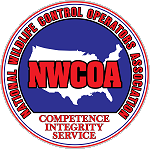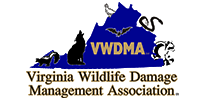Your Wildlife Professionals, Inc. provide removal and control of muskrats in residential and commercial ponds and lakes in Virginia. It is not always important to know everything about muskrats, but often clients need to know other information about muskrats in Virginia. Below is some additional information about muskrats, such as muskrat habitat, where do muskrats live, home range of a muskrat, muskrat food, muskrat habits, average life span of a muskrat, and muskrat health concerns that you may want to know. If you live in Alexandria, Arlington, Bedford, Blacksburg, Bristol, Charlottesville, Covington, Chesapeake, Danville, Fairfax, Fredericksburg, Hampton, Harrisonburg, Lexington, Lynchburg, Loudon, Manassas, Martinsville, Newport News, Norfolk, Richmond, Roanoke, Smith Mountain Lake, Staunton, Virginia Beach, Waynesboro, Williamsburg, Winchester, Wytheville, or Yorktown Virginia and would like to know more about muskrats, please give us a call.
CLICK HERE to find Your Wildlife Professional in Virginia.
Habitat:
They prefer streams, rivers, ponds, marshes, and lakes. Areas with a lot of aquatic and shoreline vegetation .
Home:
Most of their homes are made in the banks of the water structure that they occupy. Lodges made out of vegetation are rare in our area. The entrance is usually just below the water level (6” - 8” Radius) and will lead to a chamber above the water line in the bank that is about 1 1/2 feet wide and 1 feet high. Their burrow leading to their den can be 10’ - 50’ in length and will typically have an air shaft leading to the surface.
Home Range:
Within 200 yards of their den.
Food:
Their diet consists primarily of vegetation. Cattails, grasses, clover, and corn are preferred. Freshwater clams, snails, crayfish, and frogs are also part of their diet.
Habits:
Primarily nocturnal in human environments.
Average Life Span:
Very high mortality rate in young. Average 1 - 4 years.
Health Concerns
Parasites: mites, fleas, roundworms, flukes, and tapeworms.
Diseases: abscesses, septicemia, coccidiosis, leukemia, and gallstones. A fungus disease, tularemia, can be transmitted to humans handling muskrat removals.
CLICK HERE to find Your Wildlife Professional in Virginia.










